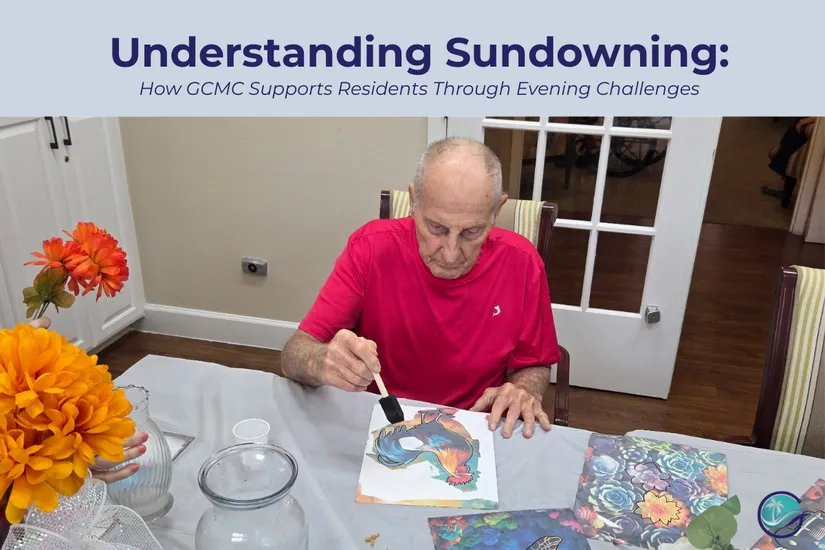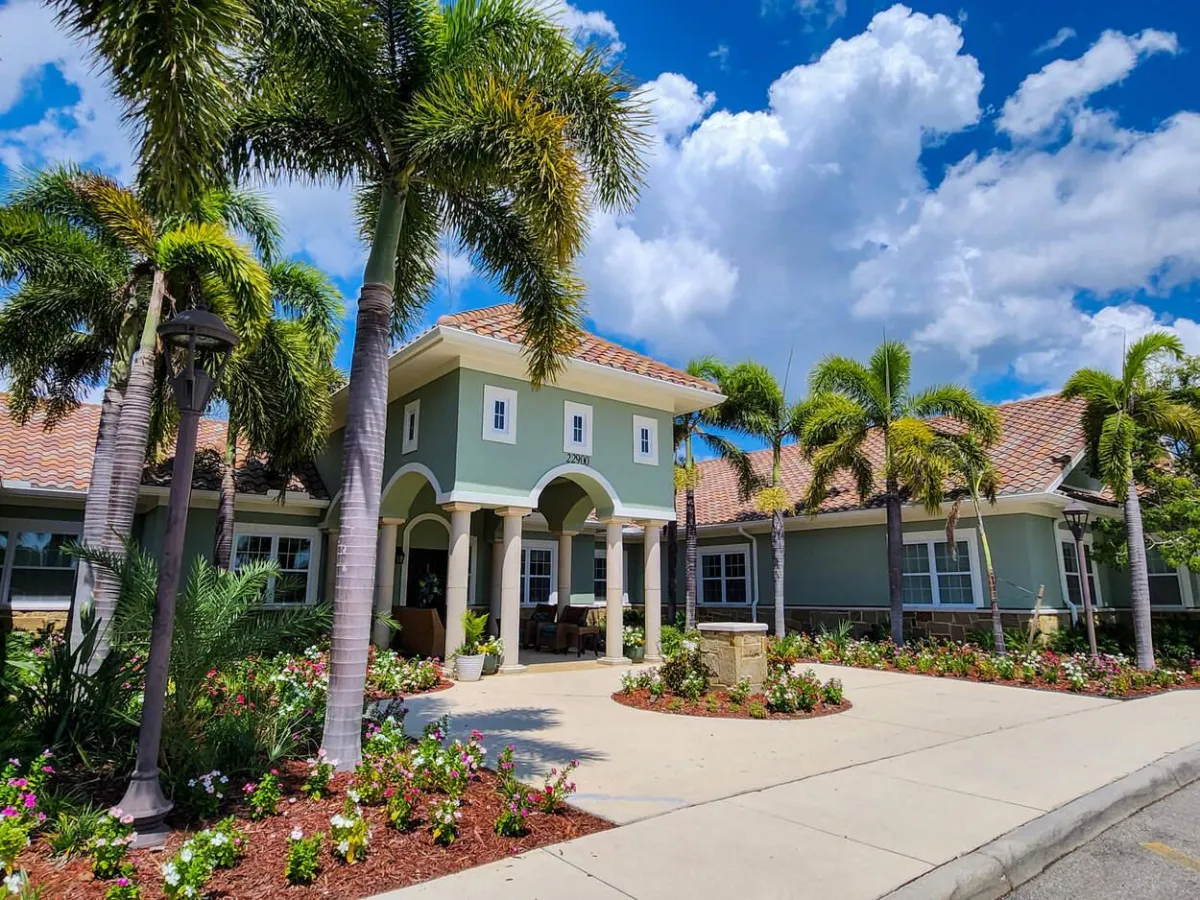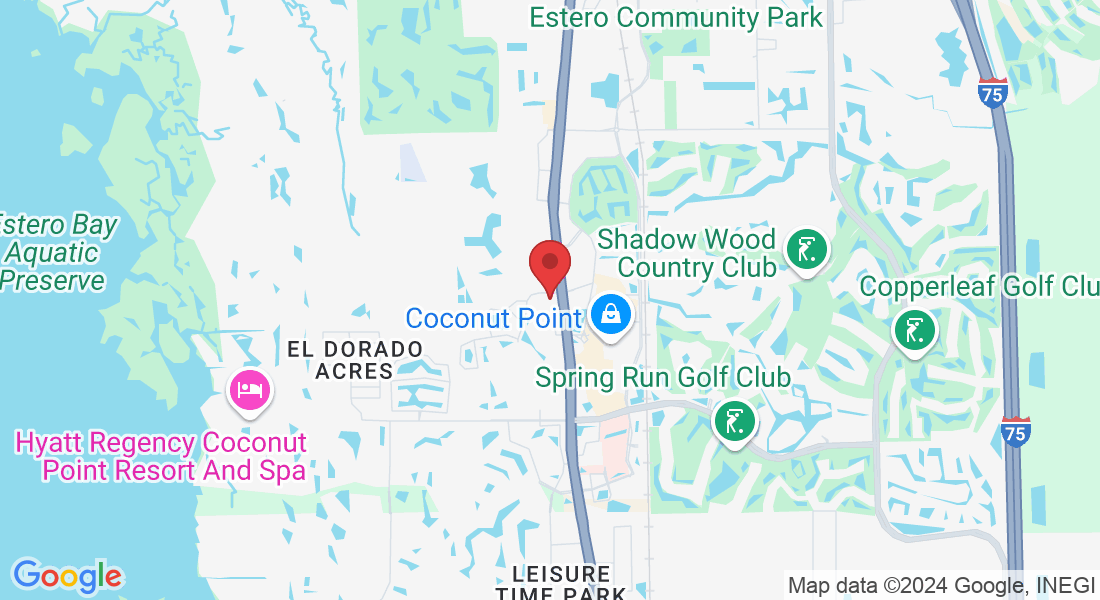Call Us: (239) 427-1455
We are NOT currently hiring. This site is for families seeking memory care services. For employment inquiries, visit our Indeed page.
Memory Care Resources
Enjoy these articles on finding the right care for your loved one

Understanding Sundowning: How Gulf Coast Memory Care Supports Residents Through Evening Challenges
For many families navigating Alzheimer’s and dementia, the late afternoon and evening hours can bring unexpected changes in their loved one’s mood and behavior. This phenomenon—known as “sundowning”—can be confusing, exhausting, and even a little frightening. We understand the challenges sundowning brings, and we’re here to help both residents and families find comfort, support, and peace of mind.
What Is Sundowning?
Sundowning refers to a pattern of increased confusion, agitation, anxiety, or restlessness that often occurs in people with dementia as the day transitions to evening. While not every resident experiences sundowning, it’s common enough that families and caregivers should know what to look for and how to respond.
Typical signs of sundowning include:
Increased confusion or disorientation as daylight fades
Restlessness or pacing
Mood swings, irritability, or anxiety
Trouble sleeping or increased wakefulness at night
Repetitive questions or attempts to leave
Why Does Sundowning Happen?
According to Mayo Clinic research, several factors may contribute to sundowning:
Changes in the brain’s internal clock, making it harder to distinguish day from night
Fatigue or overstimulation from a busy day
Hunger, thirst, or physical discomfort
Shadows, low lighting, or reduced visibility as the sun sets
Unmet emotional needs, such as loneliness or uncertainty
How GCMC Helps Residents Manage Sundowning
Our team is specially trained to recognize the signs of sundowning and respond with patience, compassion, and proven strategies. Here’s how we support residents through these challenging hours:
1. Structured Routines Our “Rhythm of Life” daily schedule provides a consistent routine, which helps reduce anxiety and confusion. Familiar activities, regular meals, and gentle transitions throughout the day help residents feel secure and oriented.
2. Thoughtful Lighting and Environment We keep common areas well-lit and welcoming as evening approaches, minimizing shadows and creating a sense of calm. Our community design maximizes natural light during the day, which can help regulate sleep-wake cycles.
3. Calming Activities As the day winds down, we offer relaxing activities—like music, gentle movement, or quiet time in the family living room—to help ease the transition to evening. Our team is always nearby to provide comfort and reassurance.
4. Personalized Care Every resident is unique. Our team works closely with families to understand each person’s history, preferences, and triggers. We adjust routines, offer favorite snacks, and provide one-on-one attention as needed.
5. Support for Families We know sundowning can be tough for families, too. Our team keeps families informed, shares practical tips, and offers reassurance that their loved one is safe and cared for—even during the most challenging moments.
Practical Tips for Families Facing Sundowning
If you’re caring for a loved one with dementia at home, here are a few tips that may help:
Keep a regular daily routine with consistent meal and activity times
Encourage exposure to natural light during the day
Limit caffeine and sugar late in the day
Create a calm, soothing environment in the evening—soft music, familiar objects, and gentle lighting can help
Offer reassurance and companionship rather than trying to “reason” through confusion
And remember: you’re not alone. If sundowning becomes overwhelming, reach out for support. Our team at GCMC is always here to help answer questions and provide guidance.
Why GCMC’s Approach Makes a Difference
Sundowning is never easy, but with the right support, it can be managed. At GCMC, our commitment to person-centered care means we meet each resident where they are—responding with empathy, flexibility, and the expertise that comes from years of dementia care experience.
If you’re seeking a memory care community that truly understands the challenges of dementia, we invite you to give us a call at (239) 221-6120 or schedule a tour for a conversation about how we can help.

Gulf Coast Memory Care
(239) 427-1455
22900 Lyden Dr, Estero, FL 33928
AL# 12921





